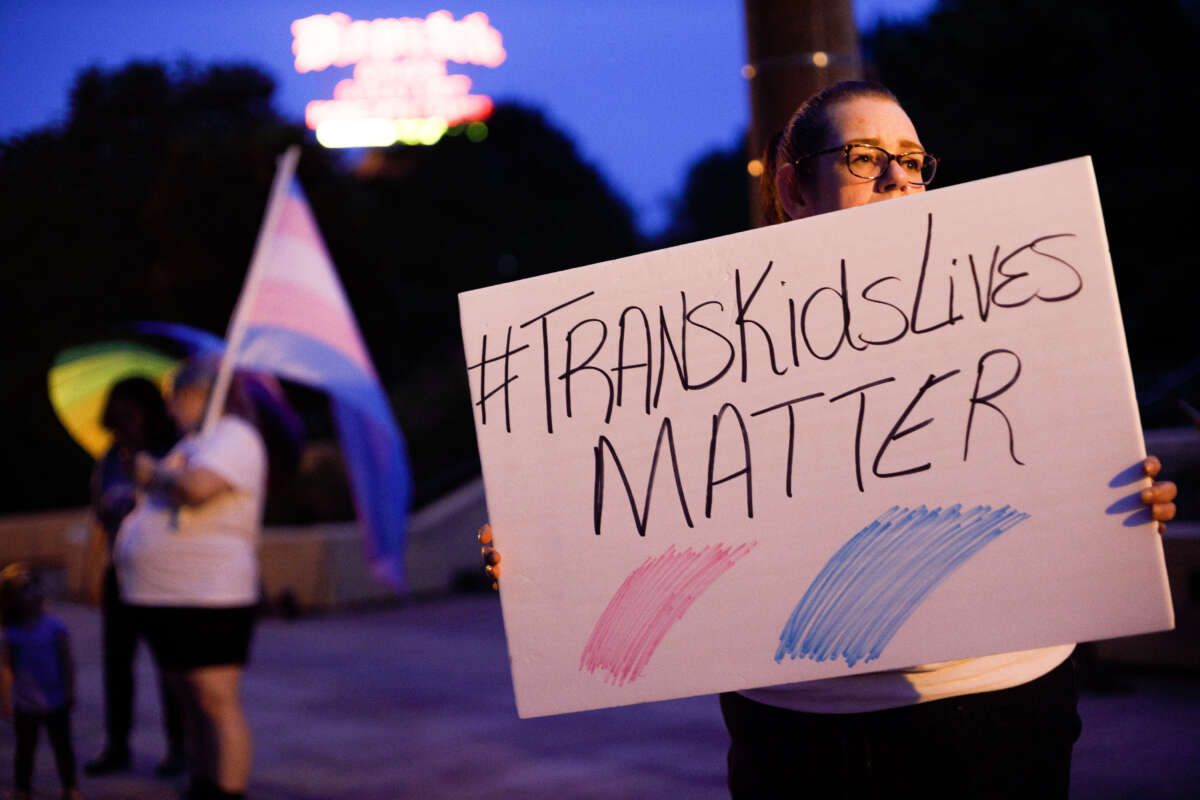Did you know that Truthout is a nonprofit and independently funded by readers like you? If you value what we do, please support our work with a donation.
Last week, the Alaska State Board of Education published a resolution recommending that the Alaska Department of Education and Early Development adopt a policy that would ban transgender girls from participating in girls’ sports teams.
While nonbinding, the resolution was passed as the Alaska state legislature is considering three anti-LGBTQI education bills, including a transgender sports ban, and advocates fear that it may push other anti-trans policies forward.
The resolution includes anti-trans and factually inaccurate rhetoric, including the claim that “medically prescribed hormone treatment for the purpose of gender transition is not a best practice recommendation for children under the age of 16,” which has been rejected by medical professionals.
The bill would effectively bar trans girls from participating in school athletics. While the resolution recommends that Alaska Education regulations provide a sports division for transgender students, Billy Strickland, the executive director of the Alaska School Activities Association, has said that there aren’t enough trans athletes to populate a third division.
Under current regulations, it is up to individual school boards to adopt policies relating to transgender athletes’ participation in sports. Most districts do not currently have policies in place; only one school, the Matanuska-Susitna (Mat-Su) Borough School, limits the participation of trans athletes.
In 2022, the American Civil Liberties Union (ACLU) of Alaska condemned Mat-Su’s ban on trans youth participation in sports and sent a letter to the president of the school board asserting that “attempting to ban transgender girls from playing on girls’ teams constitutes illegal discrimination under the United States and Alaska Constitutions and Title IX.”
Currently, 19 states across the country have enacted trans sports bans, which are part of a larger nationwide legislative attack on transgender people. West Virginia recently asked the U.S. Supreme Court to allow it to enforce its trans sports ban, which is currently halted during appeal.
It is becoming increasingly common for the far right to squash dissent by holding hearings to pass legislation with little to no notice.
In Kentucky, Republicans attempted to pass a transgender youth health care ban, Senate Bill 150, with no Democrats present during lunch break. GOP lawmakers resurrected this law and gave six minutes notice for a sudden hearing, without giving public notice.
In Texas, the Senate suspended the posting rule and scheduled a public hearing the night before on a bill being heard the next day which would take away state funded (and indirectly all) insurance for trans related care.
Also in Texas, Trump-appointed District Court Judge Matthew Kacsmaryk recently scheduled the first hearing for a case on the abortion medication mifepristone for March 8, but delayed putting the hearing on the public docket until the night before to supposedly keep the hearing from “being disrupted.”
While Alaska Republicans like Sen. Shelley Hughes knew that the Alaska State Board of Education was considering the resolution, Democrats like Sen. Löki Tobin were caught “off guard” by the passage of the resolution and did not know about it until after it had passed. The resolution was also not open to public comment by community members. Sen. Shelley Hughes said Friday that she had been aware of the resolution “for some time” and had intentionally been “keeping it quiet” because she “knew that it would create a stir.”
Mike Garvey, Advocacy Director of the ACLU of Alaska, tweeted that the Alaska State Board of Education was effectively “sneaking around taking away people’s rights,” by passing the resolution without providing notice or inviting testimony.
Press freedom is under attack
As Trump cracks down on political speech, independent media is increasingly necessary.
Truthout produces reporting you won’t see in the mainstream: journalism from the frontlines of global conflict, interviews with grassroots movement leaders, high-quality legal analysis and more.
Our work is possible thanks to reader support. Help Truthout catalyze change and social justice — make a tax-deductible monthly or one-time donation today.
